The greatest concern with any restriction on tobacco sales in Northern Ireland is the smuggling opportunity for organised crime and paramilitary gangs.
Yet nobody mentioned this when the House of Commons discussed plans to ban cigarette sales to people born after 2009. That was despite English MPs voicing fears about smuggling and organised crime in their own constituencies.
Of Northern Ireland’s MPs, only the DUP’s bothered to contribute. Sammy Wilson made a good point about retail workers being exposed to abuse once they have to enforce the new system. Ian Paisley asked if the EU would block the ban in Northern Ireland due to the Windsor Framework, a confused point, as he opposes the ban and the framework.
A minister responded this should not be a problem, but what of the smuggling problem? Unless law enforcement is resourced to cope, tobacco bans in Northern Ireland are a potential security disaster.
Asked about the UK proposals by RTÉ, new taoiseach Simon Harris said his government wants “a tobacco-free Ireland”, indicating cross-border harmonisation is the aim. However, he put this in terms of public health. Nobody in the Republic has mentioned security either.
**
Stormont officials were preparing to introduce water charges by 2027 in the months before devolution was restored, it has emerged. The charging model, revealed by the Belfast Telegraph, was to be “based on household occupancy with a later optional roll-out of water meters after some revenue has been raised to cover the infrastructure costs”.

Most previous recommendations for water charging have been based on property value, seen as fair in terms of wealth, or metering, seen as fair in terms of use. Only the drain-brains of the Northern Ireland Civil Service could manage to combine a water charge, a poll tax and the expense of installing meters. Even England’s water companies never bill by occupancy.
**
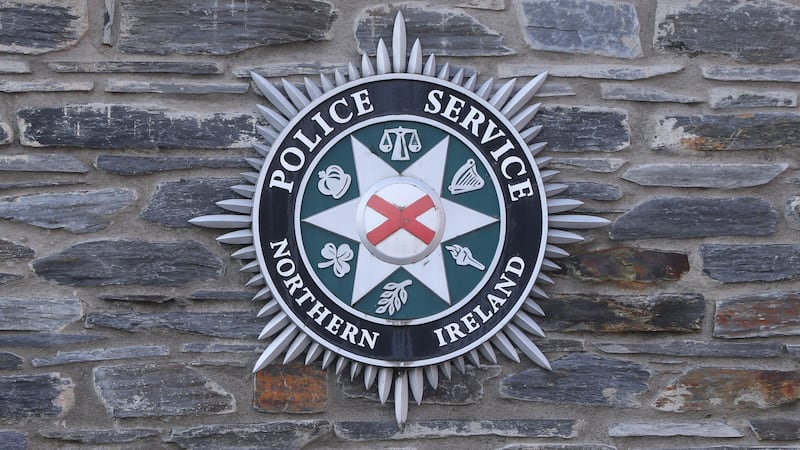
The PSNI is to close 11 of its 28 front desks in police stations due to “unprecedented financial pressure”. While this is unfortunate, it is hardly calamitous. The desks are staffed by civilians and are open to the public, which must involve a high degree of inefficiency, eccentricity and time-wasting.
Non-emergency access to the police is meant to be through neighbourhood officers, contactable by phone. Many are so over-worked they are effectively unreachable. Front desks are beside the point.
The critical issue with police availability is the number of officers sitting in hospitals. There are times when a significant share of those on duty are waiting with people they have escorted to A&E for various reasons.
It might make more sense to have a PSNI desk in each of Northern Ireland’s nine acute hospitals, with an officer or civilian staff member to receive and keep on eye on people their colleagues bring in, freeing their colleagues to go back out again. We have harbour police, and sometimes discuss having transport police. Why not hospital police?
We have harbour police, and sometimes discuss having transport police. Why not hospital police?
**
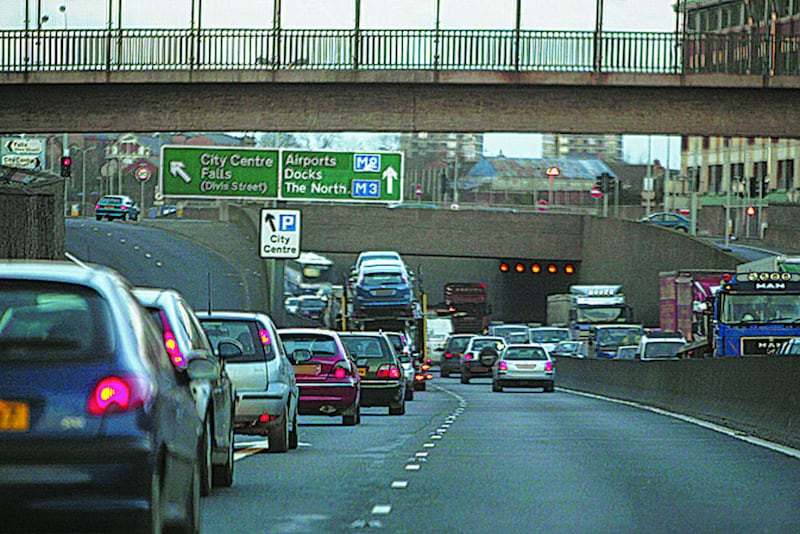
The Royal Society of Ulster Architects has published an alternative proposal for Belfast’s doomed York Street interchange scheme. The proposal would achieve similar objectives at a fraction of the cost by making better use of existing roads.
Although Stormont will ignore this, it does raise the question of why more ingenuity is not put into making infrastructure cheaper.
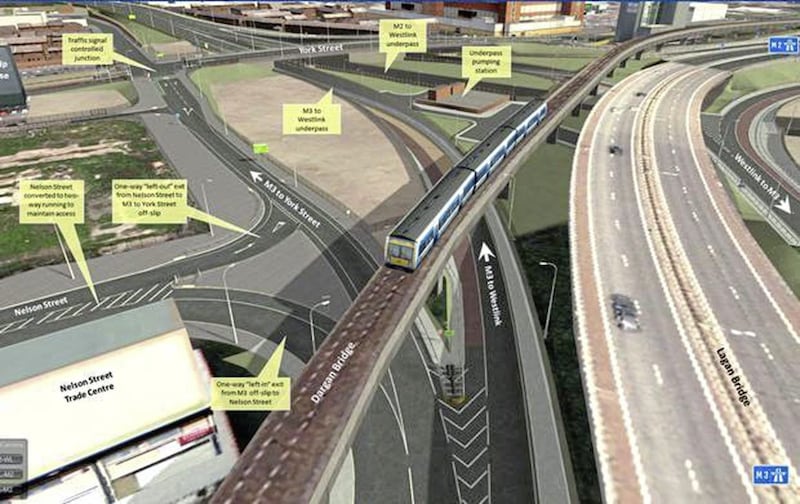
The EU funded a research programme a decade ago on cutting the cost of railways that deserves wider attention. English cities are pioneering low-cost trams. Radical new road-building materials and techniques are being developed around the world, including by firms in Northern Ireland. The Republic is experimenting with modular housing, although not so far with much success.
High-quality infrastructure is the ideal, obviously. But anything is better than nothing when those are the only options available.
**
Belfast High Court has ordered the Boston College tapes to be handed over to the PSNI next week, 13 years after police first tried to get their hands on the oral Troubles testimony and a quarter of a century after the interviews were recorded by academic researchers, led by former IRA prisoner Anthony McIntrye.
Five days later, on May 1, the Troubles amnesty legislation will come into effect and render all the information useless for any criminal or civil case.
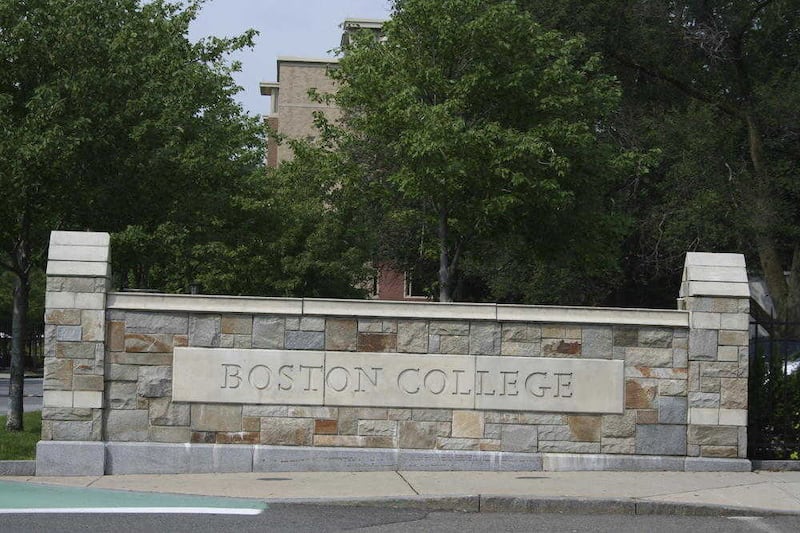
As if that were not absurd enough, other sections of the amnesty legislation require the compilation of an oral Troubles history archive, including material “made by, or received from, a person in the United Kingdom, Ireland or elsewhere”.
The Boston College tapes could end up in this archive. They could also end up being its most forthright testimony from former paramilitaries, given Sinn Féin’s two-faced response on “truth” to the Kingsmill inquest, and indeed its frantic hostility to the Boston College project.
**
Legislation is to be introduced on defective buildings, DUP communities minister Gordon Lyons has told the assembly, following the controversy over Belfast’s Victoria Square apartments.
The law in Northern Ireland requires any claims against developers to be brought within six years of a building’s completion. Lyons said he will extend this to the same time-frame introduced to England and Wales in 2022, which has been reported as 30 years. However, it is not quite that simple.
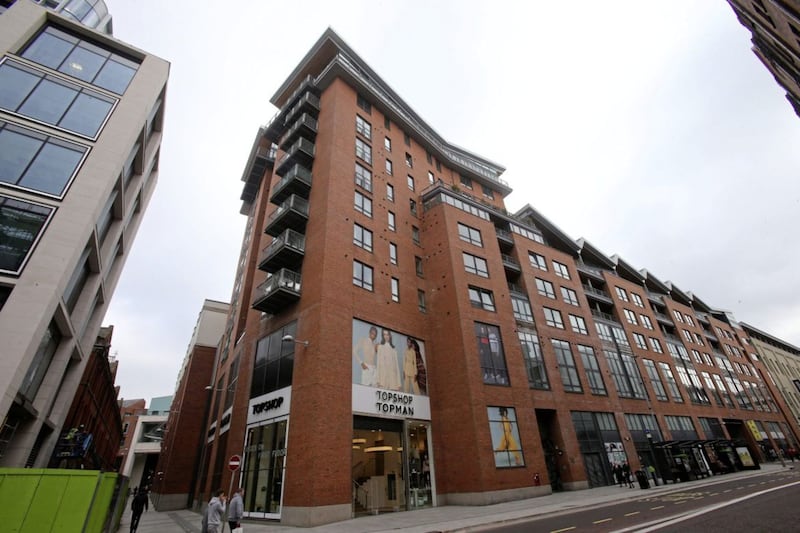
The 2022 law allows claims for buildings finished 30 years before the law was passed but for buildings completed after the law was passed the limit is 15 years. Lyons’s proposed law is the same. This deadline is tight enough: the flaws at Victoria Square only emerged 11 years after it was finished.
**
Councillors and MLAs are becoming increasingly alarmed by the number of derelict buildings in Belfast. Discussions are underway about compulsory purchase, new laws to order repairs or recover repair costs, and more use of the powers that exist.
A Dilapidation Bill has been in the works at Stormont since 2021. It was begun by Edwin Poots, then DUP environment minister. Alliance’s Andrew Muir, who took an interest in the bill, has now become environment minister. That ought to advance the legislation.
In the meantime, an overlooked legal detail springs to mind. Squatting in commercial buildings is not a criminal offence in Northern Ireland, provided no damage is caused. There was a time when a city centre filling up with students would have witnessed nature abhorring this vacuum, but young people today are so disappointingly well-behaved.



